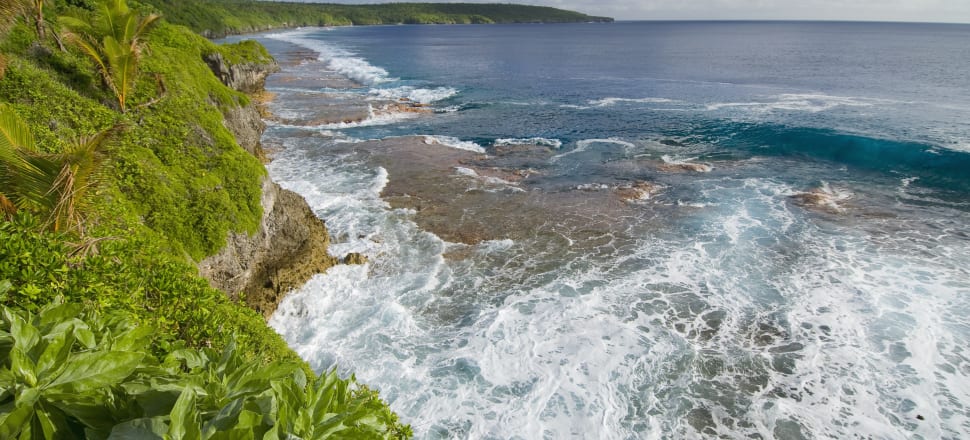
After two years of lockdown, Niue has opened its borders to quarantine-free travel from New Zealand. But the very first flight brought Covid-19 into the country. How have Niueans weighed the question of tourist dollars versus community safety?
Two years of preparation and planning were in place when Niue reopened for tourism. But having done all the hard work, the island nation would have been justified in hoping for a bit of luck, too, as the first flight from New Zealand touched down in late June.
But Niue had no luck at all that day. Five people on the flight tested positive on day one, with one passenger hospitalised. Niue's premier, Dalton Tagelagi, was one of several close contacts who needed to isolate.
Niue had done everything right. The system worked. But Covid-19 still got in. Was it inevitable?
Yes, says Sir Collin Tukuitonga, doctor and public health expert. New Zealand had thousands of cases per day when Niue's border reopened and despite all the pre-departure testing, Covid-19 was going to get in sooner or later.
Niuean-born Sir Collin’s concern is for the capability of the nation's health system to cope if community transmission of this virus occurs.
With just four doctors on the island and around a dozen nurses, it would only take five to 10 patients requiring hospitalisation and another 20 to 30 moderately sick before resources would be overwhelmed and help from elsewhere needed.
"Many in the community regard the opening of the border, with lots of cases in New Zealand, in a quarantine-free way, was highly risky," says Sir Collin.
"Many in the community were unhappy about it, I understand."
But with tourism bringing in much-needed money, and other islands opening their borders, he accepts there was no other option.
"It had to happen. Those who derive their incomes from private sector activities were really keen for it to open. The rest of the community less so. The question was when and how do you do it safely."
Catherine Etauata Papani, chief executive of the Niuean Chamber of Commerce, agrees.
"It's been really tough on the businesses, but it's been good to see, with [quarantine-free travel], activities going on, and businesses are actually feeling a little bit more relaxed with a bit more income."
That's not to say she doesn't have questions about what will happen if Covid-19 gets into the community.
"What happens if someone in accommodation contracts Covid? What happens if the business doesn't want them there? If business has to lock down, who provides support for them? Because the only income they have is from their business."
Niue's government and health officials have done the best job possible to prepare for reopening the border, believes Sir Collin. The nation used their two years of isolation well to vaccinate the population, develop testing protocols and create isolation facilities.
"I commend them. But the risk will continue as long as the pandemic is rolling on in New Zealand and elsewhere in the world.
"It's just the nature of the beast."
Find out how to listen and subscribe to The Detail here.
You can also stay up-to-date by liking us on Facebook or following us on Twitter.








